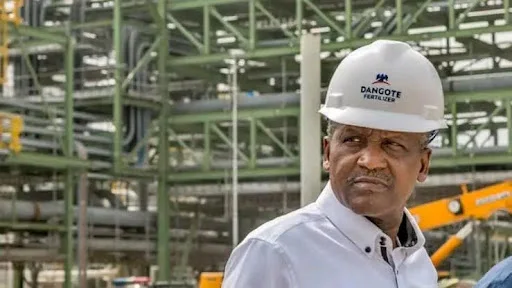The Nigerian National Petroleum Company Limited (NNPCL) has long been at the center of controversy, with its monopoly over the oil sector often shrouded in allegations of corruption, mismanagement, and inefficiency. Recent developments involving Dangote Refinery have exposed the lengths to which NNPCL is willing to go to protect its monopoly, even at the detriment of Nigeria’s economic growth.
For years, NNPCL has been unable to refine crude oil for local consumption, forcing the country to rely on expensive imports. This failure has cost Nigeria billions of dollars annually, with the burden ultimately placed on the citizens. Dangote Refinery, with its promise to refine locally and sell at prices below N600 per litre, presented a serious threat to NNPCL’s dominance. If Dangote could sell cheaper fuel, no marketer would buy from NNPCL, whose prices would inevitably be higher.
NNPCL’s reaction was swift and ruthless. In a series of underhanded moves, NNPCL sought to muscle Dangote out of the market. First, they orchestrated a raid on the refinery under the guise of investigating foreign exchange laundering. When this did not cripple Dangote’s operations, NNPCL denied him access to locally sourced crude, forcing him to purchase from foreign markets. The accusations continued to pile up, including false claims that Dangote Refinery’s products were substandard.
When these tactics failed to silence Dangote, he turned to the media. Through a strategic campaign, Dangote exposed the internal corruption and inefficiencies within NNPCL, lifting the veil on practices like crude oil round-tripping, which allowed NNPCL to artificially inflate prices. The revelations didn’t stop there. Dangote also highlighted how NNPCL forced him to make the company the sole off-taker of petroleum products from his refinery, effectively caging him and preventing him from selling directly to marketers.
One of the most infamous examples of NNPCL’s corruption was the *Malabu Oil Scandal*, where senior officials were implicated in a fraudulent deal that siphoned billions from the country. Another scandal involved the *missing $20 billion*, alleged by former Central Bank Governor Sanusi Lamido Sanusi, which further exposed the deep-seated corruption within the corporation. These are just a few instances of how NNPCL has continuously undermined Nigeria’s economic potential.
As Dangote’s refinery approached its launch date, NNPCL struck again. This time, they forced a price hike on PMS (Premium Motor Spirit), just two days before Dangote was set to enter the market. By raising the price, NNPCL hoped to maintain their profit margin when they eventually resumed fuel imports, leaving consumers to suffer the consequences of inflated prices. In a bid to suppress Dangote’s competitive advantage, NNPCL refused to allow him to sell directly to marketers or even announce his pricing publicly. The goal was simple: to ensure that NNPCL retained control of the market, regardless of the cost to Nigerians.
The media became Dangote’s most powerful tool in this fight. Through carefully crafted exposés, he laid bare the extent of NNPCL’s monopolistic dictatorship. Nigerians learned how NNPCL had manipulated the market, twisted regulations, and engaged in corrupt practices to maintain its grip on the industry.
But the story doesn’t have to end here. Successful economies have shown that a combination of transparency, deregulation, and a competitive market can lead to a thriving energy sector. In the United States, for instance, the deregulation of the oil industry allowed private refineries to compete openly, which ultimately benefited consumers by lowering fuel prices and improving efficiency. In Norway, the state-owned oil company, Equinor, operates transparently and competitively alongside private entities, ensuring that oil wealth is efficiently managed and reinvested in the country's development.
Nigeria can follow these examples by breaking NNPCL’s monopoly and fostering a competitive environment that allows private refineries like Dangote’s to thrive. The media must continue to play a pivotal role in exposing the inefficiencies and corruption within NNPCL. Public pressure, backed by a strong and free press, can force NNPCL to undergo the much-needed reforms that have long been delayed.
NNPCL’s monopolistic dictatorship has stifled growth in Nigeria’s oil sector for decades. However, with Dangote’s refusal to back down and his effective use of the media, the cracks in NNPCL’s empire are beginning to show. The power of the press, combined with Dangote’s resolve, could be the catalyst for finally ending NNPCL’s stranglehold on Nigeria’s oil industry.
*Nigerians deserve an efficient and transparent oil sector, and the media must continue to shine a light on the dark corners of NNPCL's operations to ensure that the truth prevails.*
Tags
Editorial

